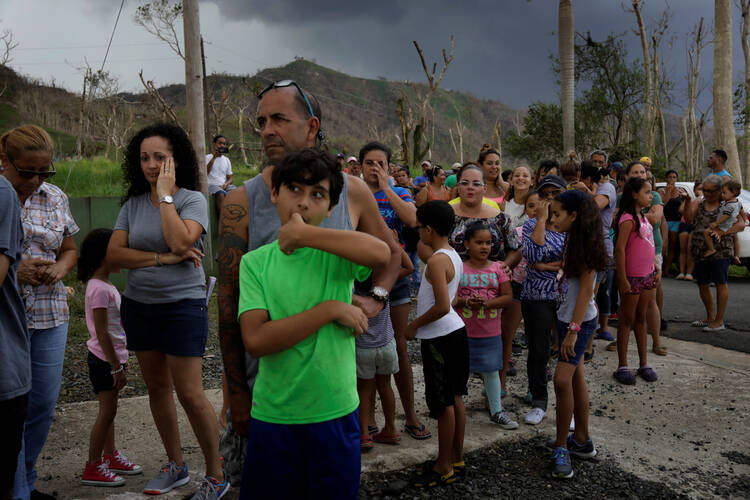The official death toll from Hurricane Maria in Puerto Rico stood at 58 on Dec. 6, more than two months after the storm, but few on the ground took the number from the commonwealth’s Department of Public Safety seriously. Two demographers, one from the U.S. Department of Defense, heightened this skepticism with a report suggesting that the government’s estimate of fatalities was off by a factor of 10. The researchers found that 455 more deaths than average were reported in Puerto Rico in September. This matched a CNN survey of funeral home directors, many of whom also questioned the accuracy of the official data.
Puerto Rico is obviously overwhelmed dealing with the aftermath of the storm, but it is bizarre to imagine future historians writing that they have no idea how many people perished in one of the worst storms in U.S. history, as if it happened in a pre-modern era instead of in the 21st century. Then again, there seems to be an epidemic of vanishing data in a political environment where unpleasant facts are wished away.
The Trump administration has scrubbed data on climate change from federal agency websites, and the Republican leadership in Congress has dismissed attempts to measure accurately the effects of its health care and tax cut legislation. The Census Bureau is being starved of funds, and even the F.B.I. has inexplicably cut back on its publicly available crime statistics. It is time to reverse this trend and restore transparency in government. Getting an accurate picture of what Hurricane Maria wrought would be an appropriate first step.










The lack of data and/or transparency goes with the banning of commonly-used words and phrases in government budgets. "Evidence-based" and science-based" are no longer allowed. This fits perfectly with a president who ignores or twists every piece of data that displeases him. Our country is in danger from this misinformation.